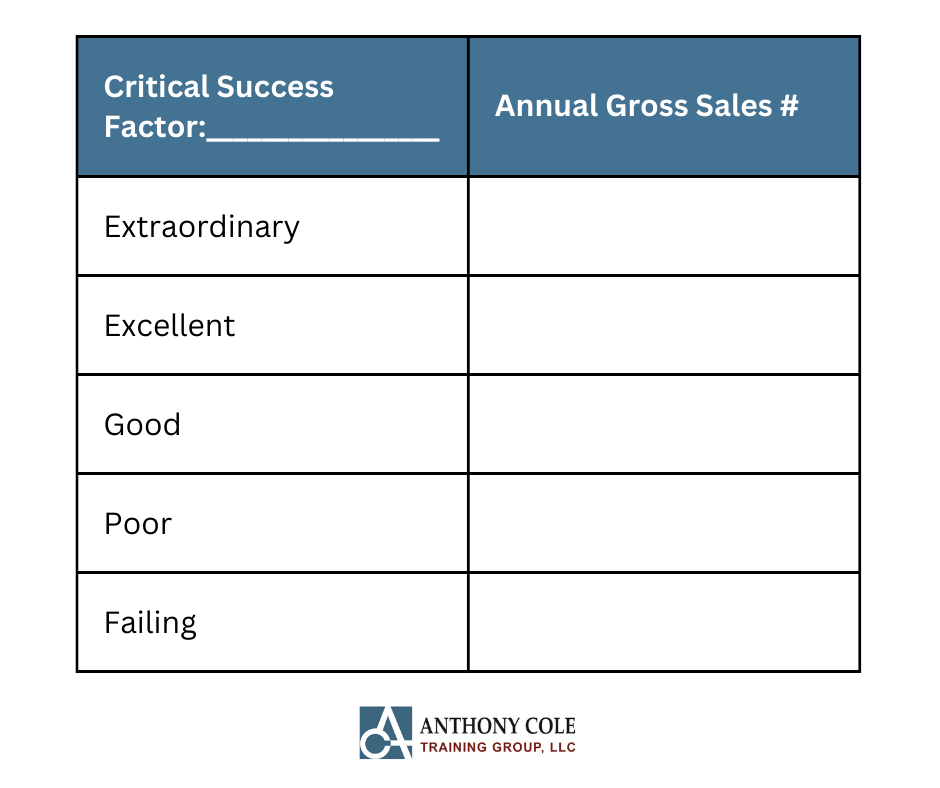Many companies are struggling with finding talent in today’s environment, and it is particularly difficult to find top-notch sales management talent. Depending on the industry, this role can be a very expensive one to fill, and it is critical to get it right. Every organization needs to grow revenue, and this person is the driver of keeping your sales team focused on the right activities, target clients, industry knowledge, technology solutions, and most importantly, sales skills. The list of responsibilities is long. Unfortunately, most sales managers have no formal training in leadership, management and coaching skills, so how do you find the right person?
There are assessments in the marketplace to identify the strengths needed for sales leadership and we recommend and utilize the Sales Management Insights from Objective Management Group. These assessments can be used to screen candidates to see if they have the skills needed to lead your team to achieve the revenue growth goals of your company. But sometimes, it is very difficult to find quality sales management candidates.
What is a Fractional Sales Manager?
Simply stated, a Fractional Sales Manager would run the sales management activities for your organization without being an employee. They would become well-versed in your company’s sales systems and culture, but they spend part of their time with your organization and the rest of their time working with other companies, so hence the “fractional” title. And of course, your company pays a fraction of their cost. They are part of your company, not part of your payroll. Something to consider as you evaluate your options: We know from 30 years of data that: Salespeople reporting to a sales leader with strong coaching skills tend to have 28% more close-able late-stage opportunities.
Many companies do not have strong sales managers and struggle with finding the right person for that critical position.
Your Company Might Consider Hiring a Fractional Sales Manager if You:
- Have a team of less than 10 salespeople
- Are tired of trying to find the right sales manager
- Don’t have the budget for a full-time sales manager
- Senior leadership is not equipped to coach and drive accountability
- Company does not have a consistent sales process
- Sales team is lacking motivation and are not driving leads
- You need to drive revenue and grow!
What Activities Would a Fractional Sales Manager Perform?
Every company is different and has nuances that they must address and therefore, they have varying needs, so it is important that you are able to select from the custom components and activities that a Fractional Sales Manager would perform. Here are the activities that you could consider for a customized Fractional Sales Management program:
- Robust Sales Meetings – Your Fractional Sales Manager will schedule and run sales meetings, establish standards, and keep your salespeople on track. These meetings are the ideal time to provide sales ideas and track the results. An experienced Fractional Sales Manager (FSM) will uncover new motivation in your salespeople.
- Weekly Huddles – A Fractional Sales Manager will make sure your salespeople are focused on the right activities and report on the metrics that matter, mobilizing the team and adding a competitive tone.
- Monthly Pipeline Review – The Fractional Sales Manager will dive into your pipeline details, continually upgrading your prospects and coaching your people on the quality of leads, which is an essential component to driving results.
- 1-on-1 Coaching –Each individual on your team needs personal help to drive skill improvement and optimize calls. Your Fractional Sales Manager will spend the time needed to get to know them, their sales goals and provide 1-on-1 time to help them close more deals.
- Updates with Leadership – Your Fractional Sales Manager will keep the leaders updated and report on accountability measurement improvements.
Let us know if we can help your company with a Fractional Sales Manager. We’ve been doing this for over 30 years- 30 years of experience developing sales leaders to more effective levels of performance management and coaching. Our Fractional Sales Management program is targeted and strategically aligned with the companies we work with, so there is an immediate lift in productivity and revenue.








